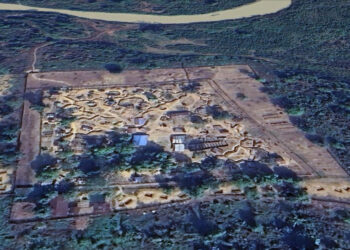RANGOON — The international community on Thursday roundly welcomed the signing of a ceasefire agreement between the Burmese government and eight non-state armed groups, urging all stakeholders to adhere to the agreement in order to bring lasting peace to the country following decades of civil war.
A number of foreign governments have provided assistance to Burma’s peace process, which has been underway for more than two years and reached a milestone on Thursday with a signing ceremony in the capital Naypyidaw.
Only a fraction of the country’s ethnic armed groups became signatory to the nationwide ceasefire agreement (referred to as the NCA), rendering the term something of a misnomer. While the pact fell short of demands for an “all-inclusive” deal that would welcome all stakeholders, foreign observers uniformly referred to the event as a “step” toward ending the world’s longest-running civil conflict.
“We call on all NCA signatories to adhere to the spirit and letter of the agreement they have signed today,” US State Department spokesperson John Kirby said in a statement from Washington, urging against any further aggression as the process unfolds. “Military action undertaken by or against any signatory or non-signatory to this agreement undermines the trust-building necessary for lasting peace, stability, and security for all.”
UK Ambassador to Burma Andrew Patrick, who was present at the signing ceremony, struck a similar note. Speaking to The Irrawaddy on the sidelines of the event, Patrick emphasized the importance of timely implementation of political dialogue set to follow the accord.
“Of course, we must remember that this is one step, and the important thing to follow is the political dialogue, which will determine the future of the country,” Patrick said. “That is a very, very important negotiation, the political dialogue that is yet to come.”
The Ambassador said he had hope that reaching the accord could serve to “reduce the amount of violence” in the war-torn country.
“In general, if you look at other countries, ceasefires help to reduce violence. They never completely stop the violence, but we hope everybody will be able to use this to step away from the violence,” he said. “But, of course, we are realistic given the history.”
Regarding financial support for the continuation of the peace process, both the Europe-backed Peace Donor Support Group and a new inter-governmental Joint Peace Fund have committed to continued monetary assistance for signatories and other stakeholders.
Swiss Ambassador to Burma Paul Seger described the fund as “one instrument whereby the international community will try to promote and to support the peace process with money,” adding that “it is not yet entirely clear how much money there will be.”
While the new fund will be “important,” Seger said, “it is not the only part of the support and assistance the international community will give.”
Statements issued by the US State Department, the UK Embassy in Burma and the Peace Donor Support Group all encouraged non-signatories to continue constructive dialogue with the government so that they may ultimately join the pact.
The document signed on Thursday was a draft agreement approved by both sides of the conflict in March of this year, including many of the ethnic armed groups that abstained. Seven other armed groups are entitled to join the pact at a later date, though they have held out on a demand that others currently ineligible and engaged in active conflict be brought into the agreement.
“We should not forget that the text itself has been agreed by everyone. Not everyone has signed today, but the substance of the text is agreed by all the parties. I think this is a major step,” said Roland Kobia, ambassador to Burma for the European Union, which is a major supporter of the government-affiliated Myanmar Peace Center. “Now of course, the NCA will become stronger if more groups join it.”

















